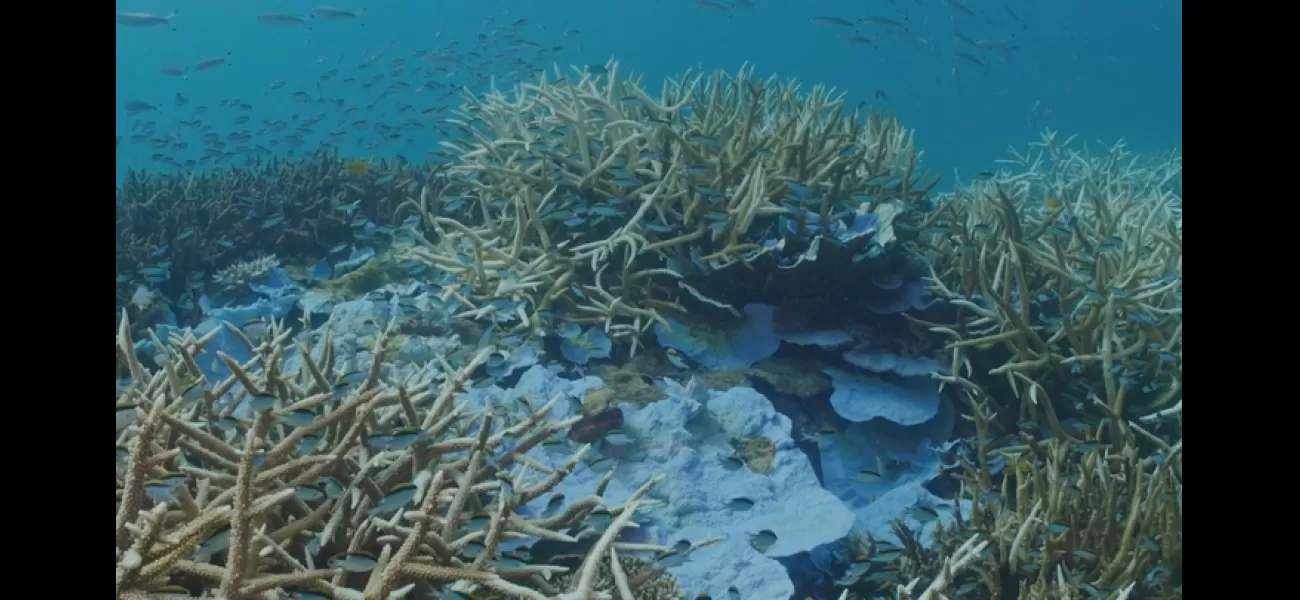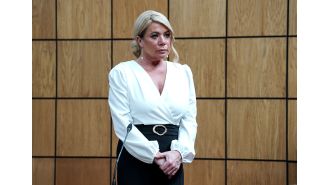Scientists and tour operators struggle with underwater crisis.
Recent ocean warming caused fifth mass bleaching event in eight years for Great Barrier Reef.
May 5th 2024.

The crystal clear waters of the Whitsundays are home to a vibrant and diverse ecosystem, with colourful and white coral formations dotting the ocean floor. However, marine scientist Professor Ove Hoegh-Guldberg's recent dive off Hook Island revealed a concerning truth. As he emerged from the sea, he couldn't help but give a frank assessment of the situation.
"I've noticed some of the coral slowly bleaching over the past few weeks," he shared with a concerned tone during an interview with 9News. "Unfortunately, many of them won't survive this event. It's a significant blow to the reef, as you can imagine."
Professor Hoegh-Guldberg is one of the many researchers assessing the damage caused by the recent marine heatwave that swept over the Great Barrier Reef. This has resulted in the fifth mass bleaching event in just eight years, leaving behind a devastating impact on the delicate ecosystem. According to the Australian Institute of Marine Science, a whopping 73% of the reef has already experienced "prevalent bleaching", and for the first time in history, "extreme bleaching" has been observed in all three regions of the marine park.
"It's crucial that we don't see this as just another normal occurrence, because it's not," warned Professor Hoegh-Guldberg. "The actions we take now will determine the future of our coral reefs."
During a tour of the affected regions organized by the Australian Conservation Foundation, Freya Cole expressed her sorrow at seeing the reef struggling. She urged the Albanese government to take stronger measures to reduce emissions and alleviate the pressure on this vulnerable ecosystem.
"There's a crisis happening below the surface, and it's being further exacerbated by climate change," she explained.
Bleaching is a process where coral turns white due to heat stress, expelling the algae that gives it its vibrant color. Unfortunately, as sea temperatures continue to rise due to global warming, these events are becoming more frequent. This is a cause for concern for tour operators like Lindsay Simpson, who has been running chartered reef trips with her husband for over a decade.
"I had a feeling this was going to happen during our summer, and unfortunately, it did. We had an exceptionally hot season," she shared with a heavy heart. "It's hard to pretend to our guests that everything is fine when it's not. People are now realizing that things are far from fine, and we need to take action."
While Environment Minister Tanya Plibersek has announced a $1.2 billion investment in reef adaptation and resilience, the government's plans to lower emissions have been met with skepticism by marine scientists like Professor Hoegh-Guldberg. He believes more drastic measures are necessary to save the reef for future generations.
"We can't afford to waste any more time debating whether it's worth it or not. It is worth it, and the situation is changing rapidly. If we don't act now, it will be gone before we know it," he urged.
"I've noticed some of the coral slowly bleaching over the past few weeks," he shared with a concerned tone during an interview with 9News. "Unfortunately, many of them won't survive this event. It's a significant blow to the reef, as you can imagine."
Professor Hoegh-Guldberg is one of the many researchers assessing the damage caused by the recent marine heatwave that swept over the Great Barrier Reef. This has resulted in the fifth mass bleaching event in just eight years, leaving behind a devastating impact on the delicate ecosystem. According to the Australian Institute of Marine Science, a whopping 73% of the reef has already experienced "prevalent bleaching", and for the first time in history, "extreme bleaching" has been observed in all three regions of the marine park.
"It's crucial that we don't see this as just another normal occurrence, because it's not," warned Professor Hoegh-Guldberg. "The actions we take now will determine the future of our coral reefs."
During a tour of the affected regions organized by the Australian Conservation Foundation, Freya Cole expressed her sorrow at seeing the reef struggling. She urged the Albanese government to take stronger measures to reduce emissions and alleviate the pressure on this vulnerable ecosystem.
"There's a crisis happening below the surface, and it's being further exacerbated by climate change," she explained.
Bleaching is a process where coral turns white due to heat stress, expelling the algae that gives it its vibrant color. Unfortunately, as sea temperatures continue to rise due to global warming, these events are becoming more frequent. This is a cause for concern for tour operators like Lindsay Simpson, who has been running chartered reef trips with her husband for over a decade.
"I had a feeling this was going to happen during our summer, and unfortunately, it did. We had an exceptionally hot season," she shared with a heavy heart. "It's hard to pretend to our guests that everything is fine when it's not. People are now realizing that things are far from fine, and we need to take action."
While Environment Minister Tanya Plibersek has announced a $1.2 billion investment in reef adaptation and resilience, the government's plans to lower emissions have been met with skepticism by marine scientists like Professor Hoegh-Guldberg. He believes more drastic measures are necessary to save the reef for future generations.
"We can't afford to waste any more time debating whether it's worth it or not. It is worth it, and the situation is changing rapidly. If we don't act now, it will be gone before we know it," he urged.
[This article has been trending online recently and has been generated with AI. Your feed is customized.]
[Generative AI is experimental.]
0
0
Submit Comment





